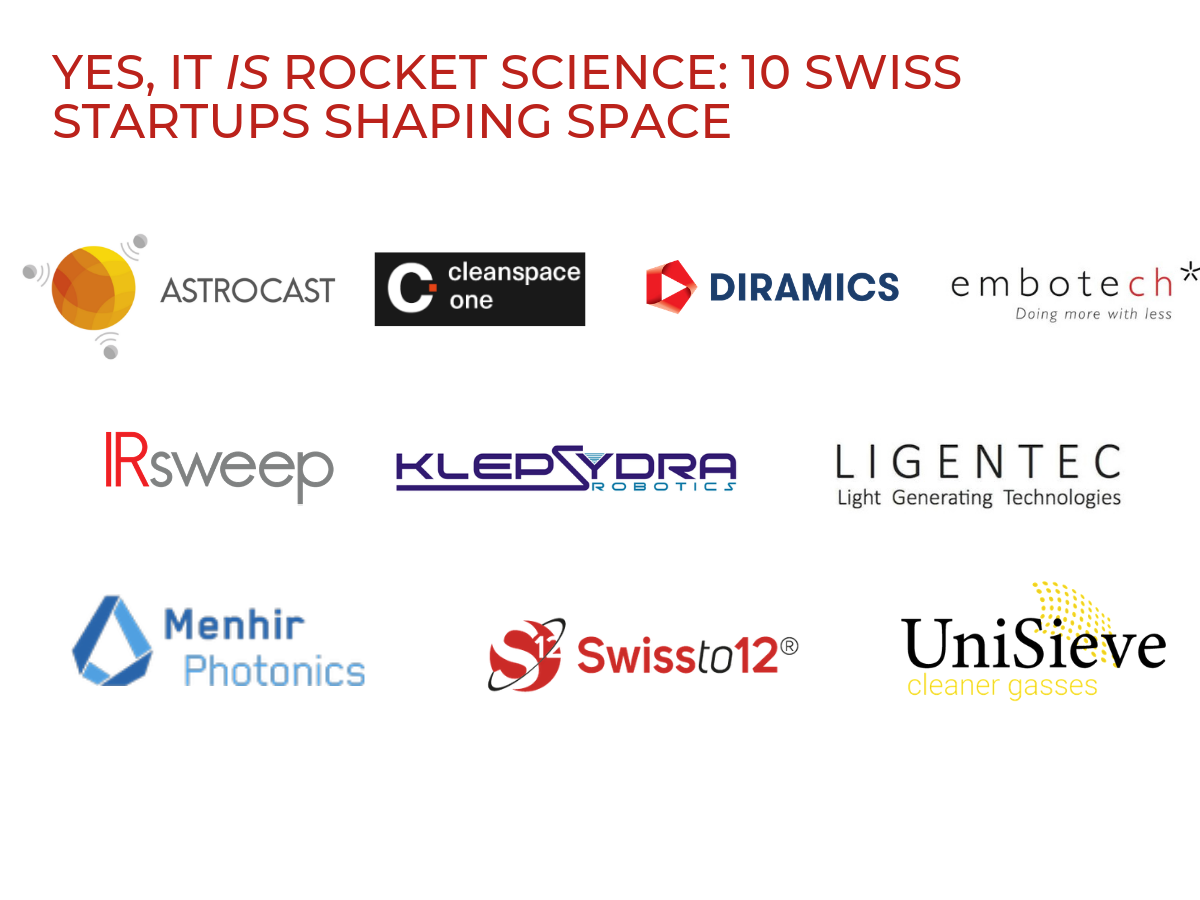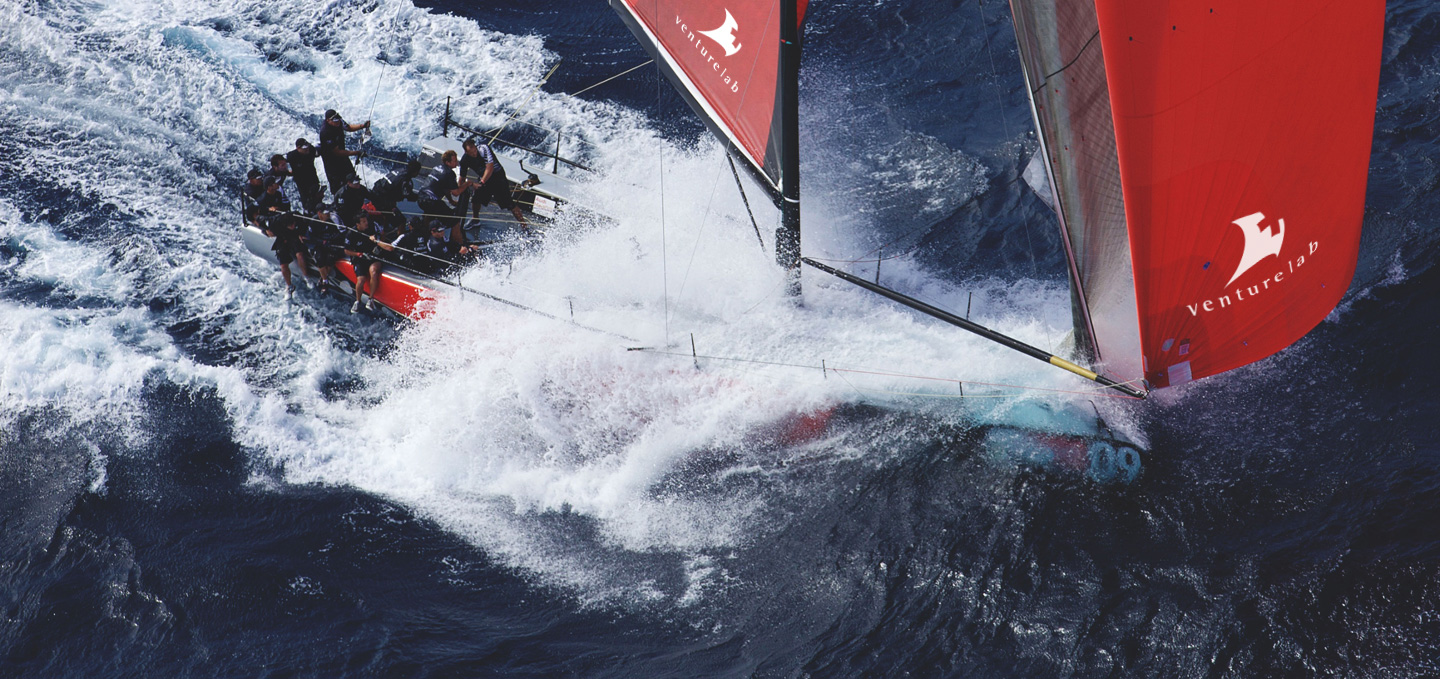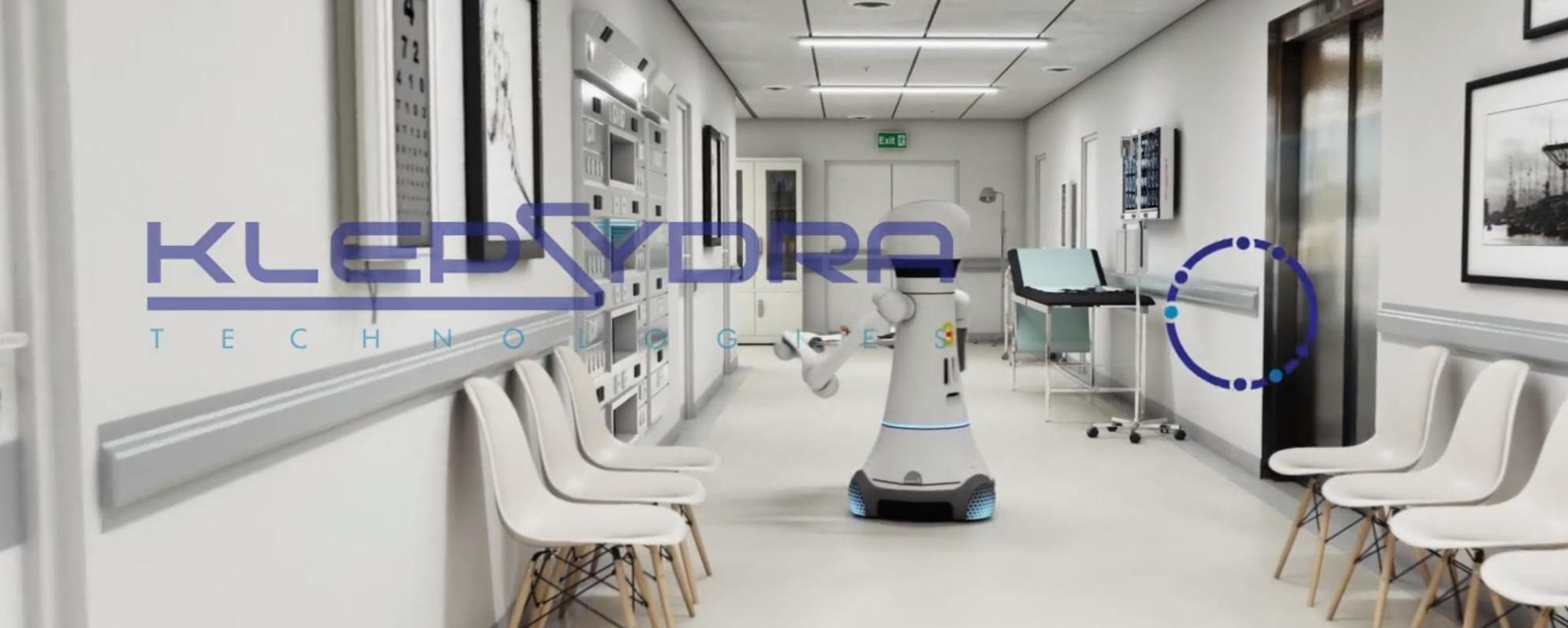Switzerland is a small country, so its visionary entrepreneurs naturally seek markets over the horizon. These ten startups are developing business for the biggest ‘niche’ of all: space.
Discover the Swiss startups transferring technology between earth, orbit and beyond. Learn below how your startup could receive a EUR 200,000 boost from ESA BIC Switzerland.

Astrocast SA

Astrocast SA
developing a network of low earth orbit nanosatellites to offer cheaper communications between internet-connected machines in remote locations. The Ecublens-based startup, which has already launched two test satellites, plans a constellation of 64 nanosatellites to ensure global coverage with latency of less than 15 minutes. The company won Venture Leaders and ranked at the TOP 100 Swiss Startup Award last year. The founders, who previously developed Switzerland’s first satellite, attracted raised more than 7 million Swiss francs in grants and seed funding from investors including Airbus Ventures. The company is currently raising a 15-million-franc round.
More than 23,500 man-made objects bigger than 10 cm in diameter orbit the Earth. ClearSpace, a spin-off from the EPFL Space Center, is developing technology to remove such debris and failed satellites, and keep near-space navigable for future generations. The team's current mission is to locate and safely remove a 10x10x10cm cube, SwissCube, as a proof-of-concept for commercial operations.
Makes chips used to amplify signals received from space by ground stations. The ETH Zurich spin-off's technology is used in Spain's 40-meter radio telescopes and European Space Agency antennas communicating with spacecraft hundreds of millions of kilometers away.
Uses physics and proprietary algorithms, instead of AI, for software to control autonomous vehicles. The five-year-old company is working on code to help fly the Heracles lunar ascender and remove space debris from orbit. The company won Venture Leaders and ranked at the TOP 100 Swiss Startup Award.
This ETH spin-off makes spectroscopic sensors to examine the composition of gaseous and liquid substances in a table-top device. IRSweep's technology offers a faster, more reliable and more versatile analysis of such substances than the current state-of-the-art. Applicable to the food, oil and pharmaceutical industries, the startup's laser spectometers could also make environmental analysis from space more precise. The company won Venture Kick in 2015 and has ranked at the TOP 100 Swiss Startup Award since 2017.
Applies software development techniques from high frequency trading, Netflix and Amazon micro services, to help coders write shorter, high performance and maintainable software for spacecraft and robots.
LiGenTec SA
The use of more sensors and connected devices means the modern world has more data than ever before. To handle this flood of data, LIGENTEC has designed photonic integrated circuits that can increase the data capacity of fibre optic cables by a factor of 200. Production of the startup's ultra-dense, fingertip-sized chips is possible thanks to innovative manufacturing techniques using aerospace wonder-material silicon nitride. Last year the company won Venture Kick and ranked at the TOP 100 Swiss Startup Award.
The use of more sensors and connected devices means the modern world has more data than ever before. To handle this flood of data, LIGENTEC has designed photonic integrated circuits that can increase the data capacity of fibre optic cables by a factor of 200. Production of the startup's ultra-dense, fingertip-sized chips is possible thanks to innovative manufacturing techniques using aerospace wonder-material silicon nitride. Last year the company won Venture Kick and ranked at the TOP 100 Swiss Startup Award.
The startup's ultra-fast, short-pulse femtosecond lasers have many potential applications in space telecommunication, from instrument calibration to improved radioastronomy communications on earth.
3D-prints radio frequency antennae to reduce the cost and weight of satellites. Printing allows previously impossible designs to be made and creating antennae that are ten times lighter. The Renens-based startup won Venture Leaders in 2012 and received 30,000 of financial support and training from Venture Kick. The company, which ranked at the TOP 100 Swiss Startup Award five years in a row, has partnered with the Swiss Federation's aerospace company RUAG Space and Thales Group's space unit.
More than 10 percent of all energy is consumed in separation processes. UniSieve, which won Venture Kick in 2018, is using patent-pending membranes to dramatically reduce the cost and increase the efficienty of separating gases. This technology could create more-effcient resource recycling in space and on other planets.
Boost your startup
ESA BIC Switzerland helps startups put innovations into orbit, and apply space-grade technology down on earth. Are you interested in rocketing your startup into new markets with as much as EUR 200,000 in grants from ESA BIC Switzerland? Register for the next information lunches in Lausanne June 6th, and Zurich June 7th.


